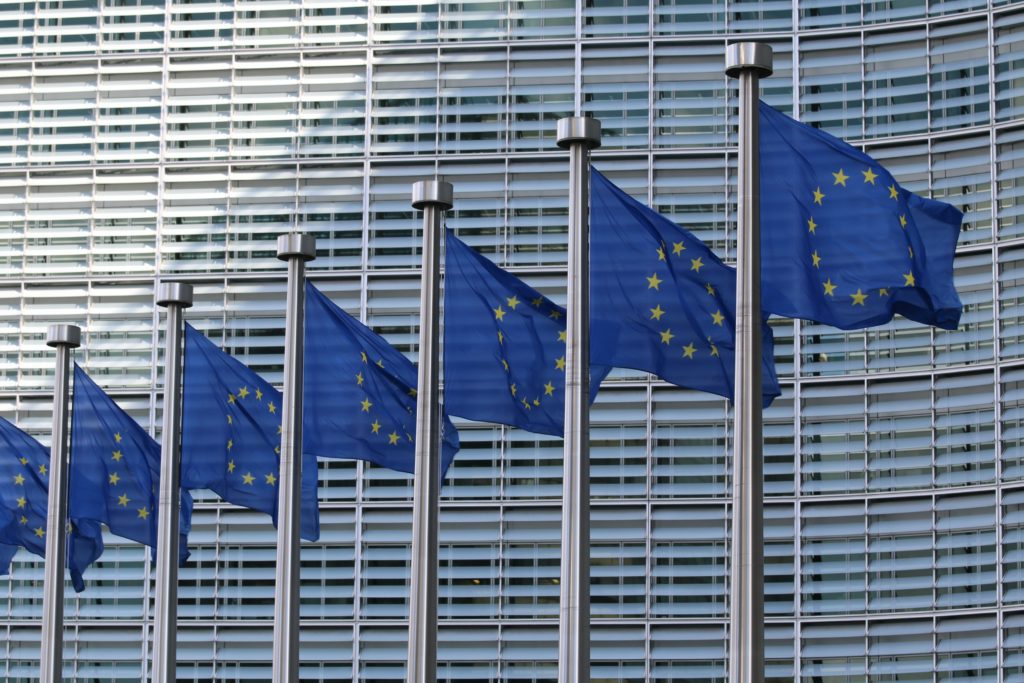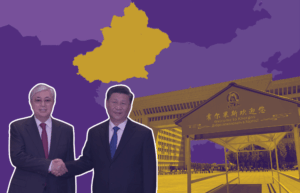In recent months, Tajik activists and members of the opposition have appealed to the international community to take action to protect human rights in the country. They feel that Europe is not doing enough, neither for the persecuted communities in Tajikistan nor for refugees in their own countries.
From 26 September to 6 October this year, a meeting of the Office for Democratic Institutions and Human Rights (a body set up by the Organisation for Security and Co-operation in Europe OSCE) was held in Warsaw, at which the question of human rights in Tajikistan was discussed.
As reported by Pamir Daily, Tajikistan sent no official delegation; only Tajik opposition activists and journalists attended.
The main themes discussed were the imprisonment of journalists and the atrocities committed during the events of last May in Gorno-Badakhshan. This province, covering half of the territory of Tajikistan, is the scene of open conflict between the inhabitants and the central government. Human rights activists consider that Europe has the means to react but is too passive in the face of repression and “ethnic cleansing”.
Activists say international reaction is disappointing
After expressing their concern and sharing eye-witness accounts of the current repression in Tajikistan, the activists demanded that Europe not only end international assistance to the country, but implement sanctions against the regime of Emomali Rahmon.
Independent journalist Houmaïra Bakhtiyar claimed in the Majlis Podcast, a popular programme produced by the US-sponsored Radio Free Europe, that because Tajikistan depends heavily on foreign aid, sanctions would be effective. International pressure may, indeed, be the only means of preventing a worsening of the situation, since the opposition has been practically reduced to silence in the country.
Read more on Novastan: Five year ban on Islamic opposition in Tajikistan
After the violent suppression of demonstrations in the Pamirs in May this year, the European response was insufficient. The European Union and the Embassies of France, Germany, the United Kingdom and the USA published a joint statement, that condemned the repression, but the Tajik government never replied and no further action was taken by the international community.
As Moukhiddine Kabiri, leader of the Islamic Renaissance Party, points out in the same article in Pamir Daily, “if these events had happened in any other country, the reaction would have been totally different.”
Europe appeals to the Tajik government to respect Human Rights
Peter Stano, spokesperson of the European Union for Foreign Affairs, reaffirmed to Novastan that the EU was focused on the targeted repression of journalists and human rights activists. The EU had appealed to the Tajik government to respect its own laws, human rights and fundamental freedoms, in particular in relation to the May events during which peaceful demonstrators were killed and members of Pamiri civil society were arrested.
The EU had demanded that the Tajik government grant the International Committee of the Red Cross access to GBAO to carry out an independent inquiry into the May killings.
Read more on Novastan: Tajikistan – dozens killed in Gorno-Badakhshan
According to Peter Stano, “In December, at the next Tajik-European dialogue on human rights and the General System of Preferences (GSP+), the EU will raise these issues and remind the Tajik government that human rights and fundamental freedoms, of assembly, of peaceful demonstration and freedom of opinion and the press, are essential parts of the negotiation to obtain EU support for GSP+ and for strengthening the Partnership and Co-operation Agreement.”
Political opponents have difficulty finding refuge in Europe
Europe is not setting a good example when it comes to the protection of refugees. According to lawyer Leïla Nazgoul Seïytbek, in an issue of Majlis Podcast, most refugees coming to Europe from Central Asia are political refugees. As far as Tajik citizens are concerned, this is due to the fact that Russia, geographically more accessible, is no longer a safe country.
As Ozodi, the Tajik service of Radio Free Europe, has explained, the Russian police is collaborating with the Tajik authorities in the arrest of dissidents. Those most at risk must find illegal ways of getting to Western Europe, with most heading to Germany.
However, once in Europe, Tajik citizens at risk of imprisonment in their own country have difficulty obtaining refugee status. Many do not have access to lawyers and to the necessary information; they are also unaware of the organisations that could help them.
Difficult to obtain refugee status
As Christian Riedle, responsible for asylum, migration and human rights in Austria, explains, it can take months or even years for the authorities to take the relevant decisions. In the case of Central Asian refugees, the final decisions may be biased due to lack of understanding of the situation by officials, who are unaware of the risks to which these persons are exposed.
Leïla Nazgoul Seïytbek notes a flagrant difference in the way various refugees are treated. Human rights activists complain about double standards for treatment of Ukrainians and Central Asians, even those who may initially have found refuge in Ukraine and had to move on to Western Europe after the beginning of hostilities.
Read more on Novastan: Tajikistan – dead and injured during protests in Gorno-Badakhshan
Obtaining refugee status requires proof of threats to safety in the country of origin, which is not always easy. Radio Ozodi cites a young man who participated in the November demonstrations in Khorog, and subsequently escaped to Germany.
“In my case, I had no advance warning: an official called my parents after the demonstrations. Some friends told me that my name was on a black list, but it will not be easy to prove this to the German authorities,” he explained.
Accusations of extremism prejudice the decision-making
Again according to Leïla Nazgoul Seïytbek, migrants may be refused refugee status because the Tajik government accuses them of terrorism or extremism. European authorities are not necessarily aware of the political situation in Tajikistan and do not know that these accusations are a ploy used for political purposes with no basis in fact.
In other words, these matters are not dealt with on the basis of presumption of innocence. If the Tajik government demands the extradition of one of its citizens by alleging extremism, European countries comply in the absence of contrary documentary evidence.
Read more on Novastan: Terrorist threats in Central Asia: facts or fiction?
The case of a Pamiri recently expelled from Austria and condemned to a long sentence in Tajikstan demonstrates that European judges lack a correct appreciation of the situation; the accusations of terrorism turned out to be false and were based on incorrect information from the Tajik government.
Activists extradited despite dangers faced
Even though Interpol undertakes inquiries that frequently determine the innocence of citizens that Tajikistan accuses of terrorism, mistakes can happen. According to Christian Riedle, it is difficult to tell whether Interpol really takes account of the fact that the accusations emanate from a state that makes accusations as part of a process of repression.
Read more on Novastan: Kyrgyz journalist Ulugbek Babakoulov finds refuge in France
Errors, whether emanating from Interpol or national agencies, are not, however, infrequent. Some activists from Central Asia who had obtained refugee status in Ukraine fled to Poland, where the Ukrainian positive decision was not upheld. Leïla Nazgoul Seïytbek reports tht there are dozens of refugees, separated from their children, in preventive detention in Poland.
She claims that the authorities responsible for granting asylum do not learn from their mistakes, and that letters from human rights organisations are ignored.
The struggle against terrorism is used as a pretext by the Tajik President
The Tajik news agency Asia-Plus reported that at a conference on co-operation against terrorism, held in the capital Dushanbe on 18 and 19 October this year, President Emomali Rahmon made a direct appeal to European countries not to grant refugee status to persons accused of terrorism. He claimed that “terrorists and extremists misuse refugee status and abuse the confidence of developed countries.”
Opposition parties that are not considered dangerous in Europe have been declared by Tajikistan as terrorist organisations.
In Central Asia, Europe is attempting to tackle numerous and genuine threats, such as the Islamic State and its regional offshoot Daech-Khorasan, as well as organised crime and problems related to the encroaching Taliban. However, in its dealings with the Tajik government, it must take account of the fact that this government does not apply the same definitions to “extremism” and “terrorism”.
Nane Bouvier
Editor for Novastan in Dushanbe
Translated by William Roberts
For more news and analysis from Central Asia, follow us on Twitter, Facebook, Telegram, Linkedin or Instagram.
 European reaction to repression in Tajikistan has no effect
European reaction to repression in Tajikistan has no effect 



